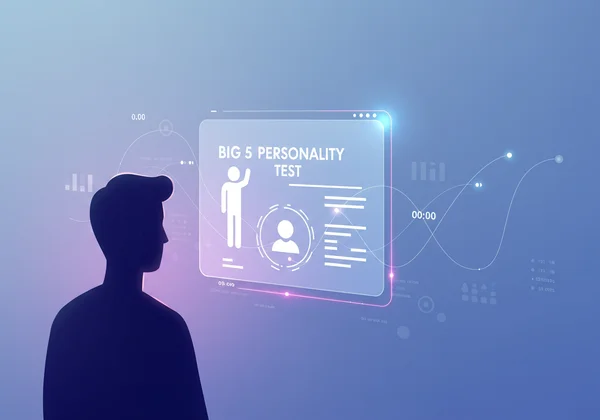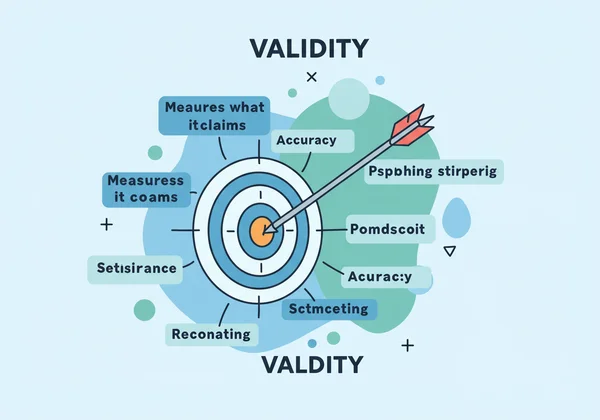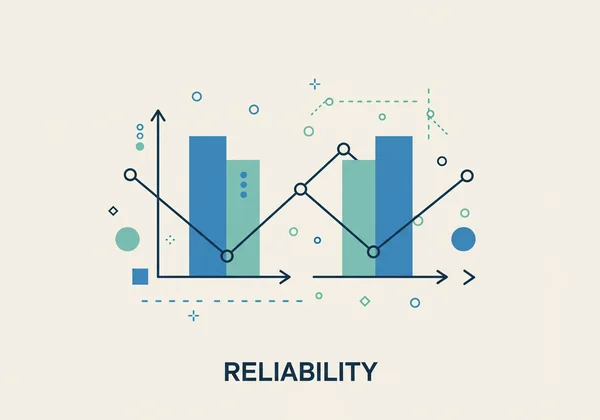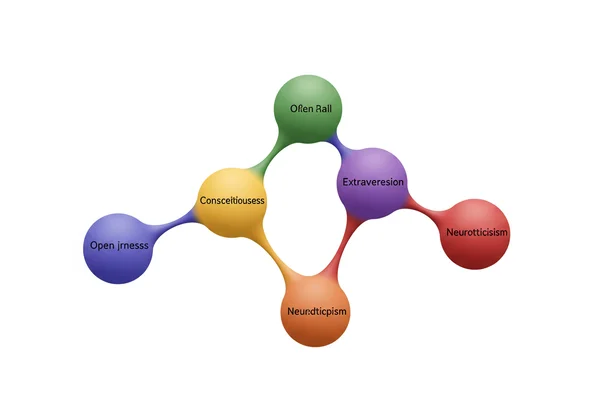Big 5 Personality Test: Scientific Accuracy & Validity Explained
Have you ever wondered how accurate online personality tests truly are? In a world flooded with quizzes, it's natural to question the reliability of the insights they offer. However, when it comes to self-understanding, not all tests are created equal. This article dives deep into the evidence proving why the Big 5 Personality Test is widely considered the most trusted and scientifically validated personality framework. It offers robust, reliable insights into your core traits, making it a powerful tool for personal and professional growth. To start your journey of self-discovery, consider taking a free test and exploring your unique profile on our scientific Big 5 personality test platform.

Understanding Big 5 Personality Test Validity
For any psychological assessment to be truly effective, its psychometric properties—namely validity and reliability—are fundamental. Let's unpack what these terms mean, particularly for a scientific personality assessment like the Big 5.
What Does Test Validity Truly Mean?
Test validity explained refers to the degree to which a test measures what it claims to measure. If a personality test aims to assess conscientiousness, for example, its questions and scoring must genuinely reflect that trait, not something else entirely. Without validity, test results could be misleading or irrelevant, undermining any attempt at self-reflection or application. This forms the foundation for truly meaningful insights.

Different Types of Validity for Personality Assessments
Psychologists consider several types of validity to ensure a test's robustness. Content validity ensures that the test questions adequately cover the entire domain of the trait being measured. For the Big 5, this means questions comprehensively address the various facets of, say, Extraversion or Neuroticism. Criterion validity assesses how well test scores correlate with other relevant outcomes or behaviors. For example, do high conscientiousness scores predict better job performance? Finally, construct validity is the overarching concept, ensuring the test accurately measures the theoretical construct it purports to measure (e.g., "Openness to Experience" as a psychological trait). Through rigorous research, the Big 5 has consistently demonstrated strong validity across these dimensions, confirming its place as a leading personality assessment tool.
Examining Big 5 Personality Test Accuracy & Reliability
Beyond just measuring what it should, a good test also needs to yield consistent results. This is where reliability comes into play, contributing directly to the perceived Big 5 accuracy.
How Reliability Ensures Consistent Big 5 Results
Reliability in psychological testing refers to the consistency of a measure. If you take a Big 5 test today and again in a month, assuming no significant life changes, you should expect to see largely similar scores. This consistency is crucial for trust in the results. High reliability indicates that the test is free from excessive random error, providing consistent Big 5 results over repeated administrations. Different forms of reliability, such as test-retest reliability and internal consistency, have been extensively studied for the Big 5, confirming its robust nature. This means you can count on the insights you gain from a quality Big 5 personality test online.

The Empirical Evidence: Studies & Meta-Analyses Confirming Accuracy
The Big 5 Personality Test isn't just popular; it's profoundly evidence-based. Decades of empirical evidence from psychological research support its accuracy and validity. Countless studies, including large-scale meta-analyses, have confirmed that the Five Factor Model (FFM), upon which the Big 5 is built, consistently describes personality across diverse cultures and populations. Researchers have linked Big 5 traits to a wide array of life outcomes, from academic success and job performance to relationship satisfaction and health. This extensive research underpins why the Big 5 is the scientific personality test of choice for many professionals. You can experience this reliable assessment yourself by visiting discover your results.
Why the Big 5 is a Leading Scientific Personality Assessment
The journey of the Big 5 from a theoretical concept to a universally recognized model is a testament to its scientific strength and predictive power.
From Theory to Accepted Model: The Five Factor Model's Journey
The Five Factor Model (FFM) evolved from decades of lexical hypothesis research, where psychologists analyzed language to identify the fundamental dimensions people use to describe personality. By examining common adjectives used to describe individuals, researchers consistently converged on five broad dimensions: Openness to Experience, Conscientiousness, Extraversion, Agreeableness, and Neuroticism (often remembered by the acronym OCEAN test). This journey from theoretical exploration to an empirically supported model highlights the thorough scientific process behind the Big 5, making it a truly robust big 5 model of personality test.

Consensus Among Psychologists: A Widely Adopted Framework
Unlike some other popular personality frameworks, the Big 5 enjoys broad consensus among psychologists. It is the most widely adopted framework in academic research, clinical practice, and organizational psychology. Its acceptance stems from its replicability, cross-cultural applicability, and strong predictive validity. This widespread adoption by the scientific community further reinforces the legitimacy and trustworthiness of the Big 5 personality traits test. When you use our Big 5 test platform, you're engaging with a tool built upon this globally recognized and respected psychological framework.
Practical Predictive Power: How Big 5 Insights Apply to Real Life
The true value of the Big 5 lies in its practical predictive power. Understanding your Big 5 profile can offer significant insights into various aspects of your life. For instance, high Conscientiousness is often associated with academic and professional success, while high Extraversion might indicate a preference for social careers. Neuroticism levels can predict stress responses, and Openness to Experience is linked to creativity and intellectual curiosity. These insights are not merely descriptive; they provide actionable information that can guide career choices, improve relationships, and foster personal growth. Whether you're a self-explorer, a student, or an HR professional, the Big 5 offers a clear map to understanding yourself and others. Take the first step to get actionable insights.
The Enduring Science of the Big 5 for Self-Understanding
The Big 5 Personality Test stands as a beacon of scientific rigor in the realm of self-assessment. Its long history of research, robust psychometric properties (validity and reliability), and widespread acceptance among psychologists make it an invaluable tool for anyone seeking deeper self-understanding. This isn't just another online quiz; it's a scientifically-backed pathway to unlocking profound insights into who you are.
On our website, we are committed to providing a free Big 5 personality test that adheres to these high scientific standards. Our platform offers immediate core scores and the option for an AI-driven enhanced report, providing even deeper, personalized analyses for your career, relationships, and personal development. Embrace the power of scientific self-discovery. We encourage you to start your Big 5 Personality Test now and explore the depths of your unique personality.
Frequently Asked Questions About Big 5 Test Validity & Accuracy
How accurate is the Big 5 personality test?
Within the field of psychology, the Big 5 Personality Test is highly regarded for its accuracy, which is rooted in decades of rigorous research, including numerous studies and meta-analyses that demonstrate its strong validity and reliability. This means it consistently measures what it intends to measure and provides stable results over time, making it a trusted tool for understanding personality traits. You can take a free and accurate Big 5 personality test on our platform.
Is the Big 5 test scientifically valid?
Yes, the Big 5 test is scientifically valid. It is based on the Five Factor Model, which is the most empirically supported model of personality in psychological science. This model has undergone extensive validation studies, confirming its ability to accurately measure personality dimensions (Openness, Conscientiousness, Extraversion, Agreeableness, Neuroticism) across diverse populations and cultures.
What personality test is used by psychologists?
Many psychologists and researchers widely use the Big 5 Personality Test (or the Five Factor Model) because of its robust scientific backing, validity, and reliability. Its comprehensive nature and empirical support make it a preferred instrument for academic research, counseling, and organizational psychology applications. It is often preferred over less scientifically validated tests.
What are the five factors of the Big 5?
The five factors of the Big 5 personality test are:
- Openness to Experience: Reflects creativity, curiosity, and a preference for variety.
- Conscientiousness: Indicates organization, discipline, and a focus on achievement.
- Extraversion: Characterizes sociability, assertiveness, and energetic behavior.
- Agreeableness: Pertains to compassion, cooperation, and a trusting nature.
- Neuroticism: Relates to emotional instability, anxiety, and vulnerability to stress. These are often remembered by the acronym OCEAN.
How can I use my Big 5 results?
Your Big 5 personality test results can be incredibly insightful for personal and professional development. You can use them to:
- Enhance self-awareness: Understand your natural strengths and areas for growth.
- Inform career choices: Identify roles and environments that align with your personality.
- Improve relationships: Better understand your own and others' communication styles and needs.
- Facilitate personal growth: Develop strategies to leverage your strengths and manage challenges. Ready to apply these insights? Take your free Big 5 test today!